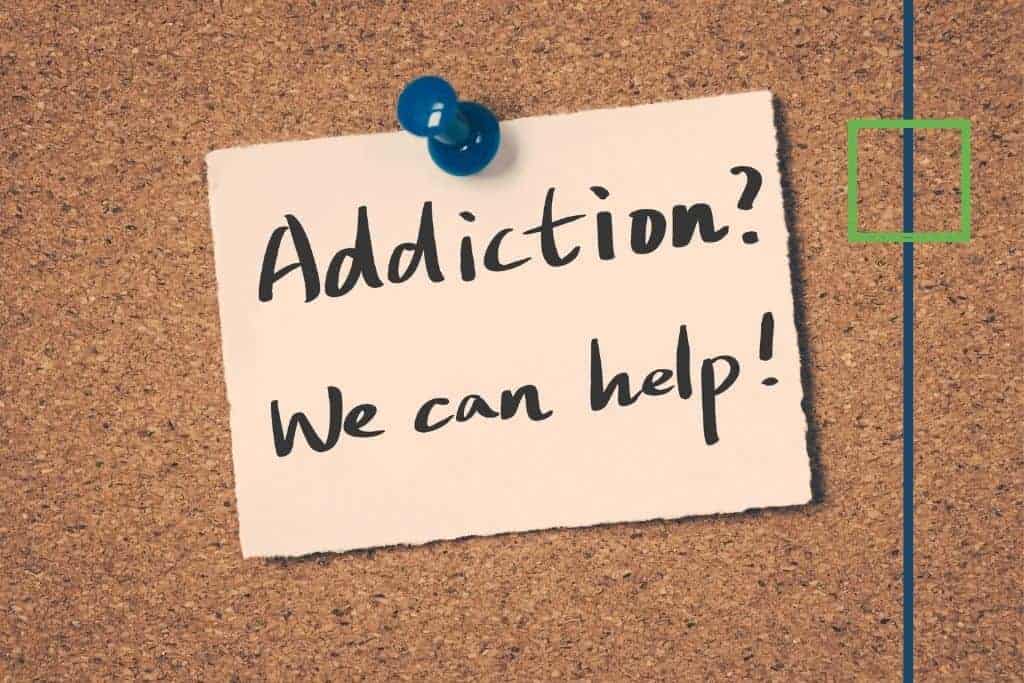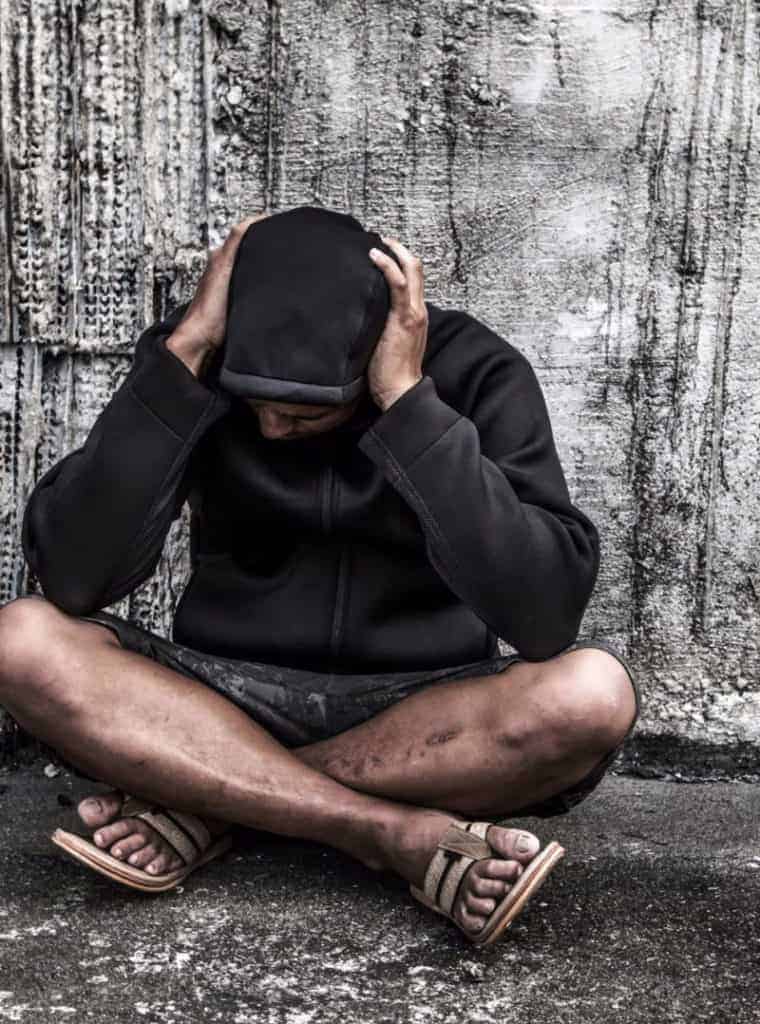Signs and Symptoms of Drug Abuse
Drug abuse, also known as substance abuse, is a disorder that involves the use of illegal, prescription drugs or over-the-counter medications in ways other than recommended or intended [1]. Substance abuse can often lead to addiction, but that is not always the case. In fact, it is possible for a person to abuse drugs or alcohol without becoming addicted.
Regardless of whether or not abuse becomes an addiction, both forms of substance use are incredibly dangerous and can have harmful effects on a person’s physical, mental, and emotional health [2]. Drug addiction or dependence signifies a physical or psychological dependence on the drug to function. Drug dependence requires the user to experience symptoms of withdrawal if the drugs were discontinued, but drug abuse does not.

Different drugs have varying effects depending on numerous factors. The frequency of use, the potency of the substance, and whether or not it is combined with other drugs can produce dangerous side effects that may put a person at risk. Drug abuse affects a person’s mood, energy, thinking, and perception of things around them. This combined with impaired judgment, decreased motor functioning, and poor decision-making can put a person in a dangerous situation. Drug use can also lower inhibitions making a person more likely to engage in behaviors or activities they would not otherwise.
Drug abuse puts a person at risk of being exposed to a host of health problems and infectious diseases. Even occasional drug abuse can put a person at risk for overdose. Recognizing signs of drug abuse early on can help you intervene before drug addiction develops. Discuss your concerns and observations with your loved ones to try and open the conversation about potential drug abuse.
Common signs and symptoms of drug abuse:
- Neglected responsibilities at school, work, or home (e.g. flunking classes, skipping work, neglecting your children) because of drug use.
- Using drugs under dangerous conditions or taking risks while high, such as driving while on drugs, using dirty needles, or having unprotected sex.
- Drug use is causing legal trouble, such as arrests for disorderly conduct, driving under the influence, or stealing to support a drug habit.
- Drug use is causing problems in relationships, such as fights with a partner or family members, an unhappy boss, or the loss of old friends.
Get Help. Get Better. Get Your Life Back.
Searching for Accredited Drug and Alcohol Rehab Centers Near You?
Even if you have failed previously and relapsed, or are in the middle of a difficult crisis, we stand ready to support you. Our trusted behavioral health specialists will not give up on you. When you feel ready or just want someone to speak to about therapy alternatives to change your life call us. Even if we cannot assist you, we will lead you to wherever you can get support. There is no obligation. Call our hotline today.
(844) 597-1011Signs of Prescription Drug Abuse
Prescription drug abuse is the use of a prescription drug in a way not intended by the prescribing doctor. Prescription drug abuse or problematic use includes everything from taking a friend’s prescription painkiller for your backache to snorting or injecting ground-up pills to get high. Drug abuse may become compulsive and ongoing, despite the negative consequences.
Prescription drug abuse is an increasing problem that can affect all age groups. The prescription drugs most often abused include opioid painkillers, anxiety meds, sedatives, and stimulants [3]. Early detection of prescription drug abuse and early intervention may prevent the problem from turning into an addiction.
Signs and symptoms of prescription drug abuse depend on the specific drug. Because of their mind-altering properties, the most commonly abused prescription drugs are:

- Anxiety meds and sedatives, such as diazepam (Valium), alprazolam (Xanax), and hypnotics, such as zolpidem (Ambien), are used for sleep disorders and anxiety treatment.
- Opioids used as painkillers, for example, prescription drugs containing oxycodone — such as Percocet and Oxycontin — and those containing hydrocodone — such as Norco
- Stimulants, such as methylphenidate (Concerta, Ritalin, and others), dextroamphetamine and amphetamine (Adderall XR, Mydayis), and dextroamphetamine (Dexedrine), are used for attention-deficit/hyperactivity disorder ADHD treatment and certain sleep disorders [4].
Signs and symptoms of prescription drug abuse are as follows:
Opioids
- Constipation
- Feeling high (euphoria)
- Nausea
- Slowed breathing rate
- Drowsiness
- Poor coordination
- Confusion
- The increased dose required for pain relief
- Worsening or increased sensitivity to pain with higher doses (hyperalgesia)
Anxiety meds and sedatives
- Drowsiness
- Confusion
- Unsteady walking
- Slurred speech
- Poor concentration
- Dizziness
- Problems with memory
- Slowed breathing
Stimulants
- Increased alertness
- Feeling high
- Insomnia
- Anxiety
- Irregular heartbeat
- High blood pressure
- High body temperature
- Reduced appetite
- Agitation
- Paranoia
Other signs include:
- Stealing, forging, or selling prescriptions
- Seeking prescriptions from more than one doctor
- Taking higher doses than prescribed
- Poor decision-making
- Excessive mood swings or hostility
- Increase or decrease in sleep
- Appearing to be high, unusually energetic or revved up, or sedated
- Requesting early refills or continually “losing” prescriptions, so more prescriptions must be written

Get Your Life Back
Find Hope & Recovery. Get Safe Comfortable Detox, Addiction Rehab & Dual Diagnosis High-Quality Care.
Hotline(844) 597-1011Physical Signs of Drug Abuse
What are the physical signs of drug abuse? Some of the most noticeable signs of drug abuse are those that affect certain physiological processes. For example, your body’s tolerance to a drug develops when a drug is used long or often enough that it adapts to the consistently elevated presence of the substance. When tolerance grows, increased quantities or strengths are required to achieve the previous effects.
People using a particular drug to get high may come to take such large doses to overcome their tolerance that they place themselves at increased risk of potentially life-threatening overdose.
Changes in physical appearance can be additional indicators of possible drug abuse and may include:

- Dental issues
- Bloodshot or glazed eyes
- Dilated or constricted pupils
- Skin changes
- Abrupt weight changes
- Changes in hygiene
- Problems sleeping or sleeping too much
Signs will vary based on the drugs and the method used (i.e., smoking, injection, snorting.).
Behavioral Signs of Drug Abuse
Drug abuse tends to significantly change a person’s habits and behavior. Some drugs can alter the brain’s ability to focus and think clearly.
Changes in behavior, such as the following, are sometimes linked with problematic substance use:
- Increased aggression or irritability
- Lethargy
- Changes in attitude/personality
- Depression
- Sudden changes in a social network
- Involvement in criminal activity
- Dramatic changes in habits and/or priorities
Learning to recognize the behavioral or physical signs of drug abuse can help prevent the problem from progressing further.
First-class Facilities & Amenities
World-class High-Quality Addiction & Mental Health Rehabilitation Treatment
Rehab Centers TourRenowned Addiction Centers. Serene Private Facilities. Inpatient rehab programs vary.
Addiction Helpline(844) 597-1011Proven recovery success experience, backed by a Team w/ History of:
15+
Years of Unified Experience
100s
5-Star Reviews Across Our Centers
10K
Recovery Success Stories Across Our Network
- Low Patient to Therapist Ratio
- Onsite Medical Detox Center
- Comprehensive Dual-Diagnosis Treatment
- Complimentary Family & Alumni Programs
- Coaching, Recovery & Personal Development Events
Signs of Abuse Related to Specific Drugs
When you suspect that you or a loved one is struggling with a drug abuse problem, it’s important to know some of the signs and symptoms of abuse to that drug. You can find a brief overview of the major drugs of abuse below.
Alcohol
Alcohol is one of the most widely abused legal substances in the United States.
Signs of alcohol abuse include:
- Frequent hangovers
- Absences from work, school, and other obligations
- Irresponsible drinking, such as drinking before driving
- Excessive binge drinking (drinking more than one eight-ounce beer or a five-ounce glass of wine in one hour.
Individuals who abuse alcohol will frequently have the scent of it on their clothes or breath. It is important to learn about the short and long-term effects of alcohol use, the major signs of alcohol abuse, and the best treatment options to help someone with an alcohol use disorder,
Methamphetamines
Methamphetamine, commonly shortened to “meth,” acts as a powerful stimulant. Students or those needing to stay awake long hours for work may use them to get a rush of energy.
Signs of meth abuse may include the following:
- Paranoid or twitchy demeanor
- Aggressive outbursts
- Inability to sit still
- Sudden weight loss
Lasting health effects of meth may include:
- Violence
- Hallucinations
- Substance-induced Psychosis
- Feelings of bugs on or under the skin
- Anorexia
- Dental problems (meth mouth)
Heroin
Heroin is one of the most dangerous and addictive drugs a person can abuse. It is a powerful narcotic that many find addictive upon the first use. Most often, heroin is administered through injection into a vein. If you see needle marks on someone’s arms, it is a sign of possible heroin abuse. The needles can be inserted anywhere that a vein is located, but the arms are the most common location.
Physical and mental effects of heroin abuse include:
- Surge or rush of euphoria
- Dry mouth
- Nausea/vomiting
- Warm, flushed (and often itchy) skin
- Constricted pupils
- Respiratory depression
In the long run, heroin use can cause side effects such as collapsed veins and weight loss, as well as inflamed tissue around the needle sites or skin abscesses. If you are ready to free yourself and your loved ones from heroin abuse, call us and learn more about how to help someone with opioid use disorder.

Cocaine
Cocaine is a central nervous system stimulant that increases energy levels and keeps people awake while raising heart rate and blood pressure. There are two main types of cocaine: a powder that is snorted, injected or smoked, and a rock form called crack cocaine that is generally smoked, although sometimes it is placed into body orifices.
Signs of Cocaine Abuse:
- Burn marks on the hands and lips
- Deterioration in hygiene habits
- Spoons, razor blades, plastic baggies, and other drug paraphernalia in the person’s room or clothing pockets
- Mood swings
- Talkative habits
- Social isolation
- Risky behaviors
- White powder residue around the nose and mouth
Marijuana/Cannabis
Marijuana and other cannabis-based products, such as edibles, may induce euphoria. They can cause heightened visual and auditory perceptions, but the user may also seem uncoordinated and forgetful. Since cannabis increases appetite, the person may eat more than usual. Reactions may be slower, and the user may also become paranoid and suspicious. Those who have smoked marijuana often appear with bloodshot eyes, droopy eyelids, and an overall relaxed or mellow demeanor.
Stimulants
A person on a stimulant may exhibit frequent behavior changes, aggression, or rapid or rambling speech. They may display dilated pupils, increased energy, and a fast breathing rate. In some cases, users may become paranoid or hostile. If users snort the drug, nasal congestion is a common sign of use. Snorting drugs like cocaine can damage the mucous membrane inside the nose.
Barbiturates and Benzodiazepines
These CNS depressants are often prescribed to treat anxiety and sleep disorders. Benzodiazepines include common medications, such as Valium and Xanax. Barbiturates are not used as much as they used to be; however, they are still sometimes employed to treat seizure disorders and during surgery.
Barbiturates carry a higher risk of overdose than benzodiazepines. A person who abuses these drugs may appear uninhibited, dizzy, or depressed. They may experience blurry vision, balance issues, and overall confusion. They may also present with involuntary eye movements, known as nystagmus.
Inhalants
Inhalants (glues, aerosols, vapors): Watery eyes; impaired vision, memory, and thought; secretions from the nose or rashes around the nose and mouth; headaches and nausea; the appearance of intoxication; drowsiness; poor muscle control; changes in appetite; anxiety; irritability; lots of cans/aerosols in the trash.
Hallucinogens
Hallucinogens (LSD, PCP): Dilated pupils; bizarre and irrational behavior including paranoia, aggression, hallucinations; mood swings; detachment from people; absorption with self or other objects, slurred speech; confusion.
Opioids
Opioids include both prescription painkillers, like Vicodin and OxyContin, and the illicit drug heroin. Signs of opioid abuse include overall sedation, memory issues, inability to concentrate, slowed reaction times, lethargy, and mood swings. Since opioids can slow the digestive system, users often experience constipation and other intestinal issues. When without the drug, users may become anxious and display
Club drugs
Ecstasy, ketamine, and GHB are common types of club drugs. Signs and symptoms of use include increased body temperature, poor coordination, dizziness, excessive sweating, clenched teeth, and slurred speech.
World-class, Accredited, 5-Star Reviewed, Effective Addiction & Mental Health Programs. Complete Behavioral Health Inpatient Rehab, Detox plus Co-occuring Disorders Therapy.
CALL(844) 597-1011End the Addiction Pain. End the Emotional Rollercoaster. Get Your Life Back. Start Drug, Alcohol & Dual Diagnosis Mental Health Treatment Now. Get Free No-obligation Guidance by Substance Abuse Specialists Who Understand Addiction & Mental Health Recovery & Know How to Help.
Find Treatment
There is a strong connection between mental health and drug abuse. Individuals who struggle with mood disorders like depression and anxiety are more susceptible to showing signs of drug abuse, often to self-medicate symptoms of their underlying mental health condition. These co-occurring disorders can make each other worse without proper treatment.
To determine the most effective ways to the signs of drug abuse, it’s crucial to first get an accurate assessment of all the symptoms. When the symptoms have been evaluated by a mental health professional, it may be determined that another form of mental condition is present and needs a particular type of treatment. Very often, some combination of psychotherapy, medication, and/or lifestyle changes are effective for coping with functional.
Medically-Assisted Detox
Detox is often considered the first stage of treatment. It will help you navigate the complicated process of withdrawal, but it doesn’t address patterns of thought and behavior that contribute to drug abuse. Various treatment approaches and settings can help provide the ongoing support necessary to maintain long-term sobriety after you complete detox.
Cravings are very common during detox and can be challenging to overcome. This often leads to relapse. Constant medical care provided during inpatient treatment helps prevent relapse. Clinicians can provide necessary medication and medical expertise to lessen cravings and the effects of withdrawals.
Psychotherapy for Depression and Anxiety
Several different modalities of psychotherapy have been used in the treatment of depression including:
- Cognitive Behavioral Therapy (CBT) – is an effective treatment that involves making changes in both the patterns of negative thoughts and the behavioral routines which are affecting the daily life of the depressed person for various forms of depression.
- Dialectical Behavioral Therapy – is a comprehensive mental health and substance abuse treatment program whose ultimate goal is to aid patients in their efforts to build a life worth living. The main goal of DBT is to help a person develop what is referred to as a “clear mind.”
- Person-Centered Therapy – is a strategy that allows and encourages clients to understand and resolve their concerns in a safe, supportive environment.
- Solution Focused Therapy – is an approach interested in solutions that can be quickly implemented with a simple first step leading to further positive consequences.
Dual Diagnosis Treatment
Substance abuse and mental health disorders often co-occur. In many cases, traumatic experiences can result in a mental health disorder and substance abuse. Dual diagnosis rehabilitation treats both of these issues together. The best approach for the treatment of dual diagnosis is an integrated system. In this strategy, both the substance abuse problem and the mental disorder are treated simultaneously. Regardless of which diagnosis (mental health or substance abuse problem) came first, long-term recovery will depend largely on the treatment for both disorders done by the same team or provider.
Medication-Assisted Treatments
Medication-Assisted Treatments (MAT) for substance use disorders and mental health disorders are commonly used in conjunction with one another. This includes the use of medications and other medical procedures. During your rehab, the staff from your treatment facility will help you identify what caused your addiction and teach you skills that will help you change your behavior patterns and challenge the negative thoughts that led to your addiction. Sometimes, the pressures and problems in your life lead you to rely on substances to help you forget about them momentarily.
The development of tolerance and withdrawal are indications of addiction. If you or a loved one are showing signs of drug abuse or struggling with long-term substance use disorder and a co-occurring mental health condition such as anxiety and depression, contact one of our helpful treatment specialists today. We Level Up can provide information on dual diagnosis and detox programs that may fit your specific needs.

Experience Transformative Recovery at We Level Up Treatment Centers.
See our authentic success stories. Get inspired. Get the help you deserve.
Start a New Life
Begin with a free call to an addiction & behavioral health treatment advisor. Learn more about our dual-diagnosis programs. The We Level Up Treatment Center Network delivers recovery programs that vary by each treatment facility. Call to learn more.
- Personalized Care
- Caring Accountable Staff
- World-class Amenities
- Licensed & Accredited
- Renowned w/ 100s 5-Star Reviews
We’ll Call You
Sources:
[1] CDC – https://www.cdc.gov/workplacehealthpromotion/health-strategies/substance-misuse/index.html
[2] NIAAA – https://www.niaaa.nih.gov/publications/brochures-and-fact-sheets/interrupted-memories-alcohol-induced-blackouts
[3] NIDA – https://www.drugabuse.gov/publications/preventing-drug-use-among-children-adolescents/chapter-1-risk-factors-protective-factors/when-how-does-drug-abuse-start-progress
[4] NIDA – https://www.drugabuse.gov/publications/research-reports/methamphetamine/what-are-long-term-effects-methamphetamine-misuse


